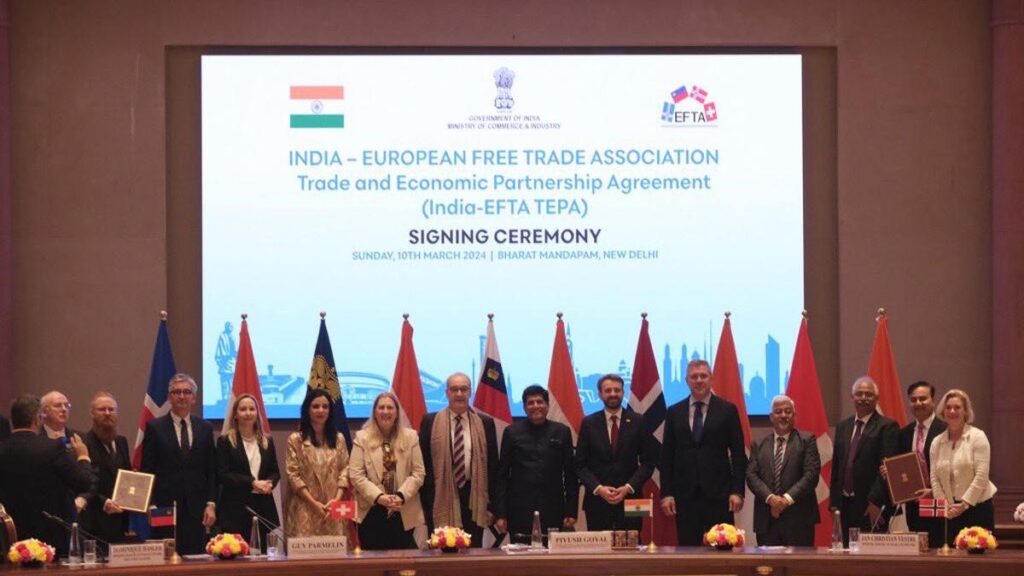India Inks Free Trade Pact with European Non-EU Nations

India seals a historic free trade agreement with the European Free Trade Association (EFTA), comprising Norway, Switzerland, Iceland, and Liechtenstein, promising substantial investments totaling $100 billion, marking a significant milestone in its trade relations.
Prime Minister Narendra Modi hails the pact as a landmark achievement, emphasising its potential to bolster economic growth and foster opportunities for India’s youth and underscoring a renewed commitment to deepening ties with EFTA nations.
After nearly 16 years of negotiations, the agreement signals India’s readiness to liberalise its trade policies by slashing import tariffs on industrial goods from EFTA members in exchange for long-term investments spanning 15 years across various sectors like pharmaceuticals, machinery, and manufacturing.
The pact is expected to streamline market access and simplify customs procedures, facilitating smoother operations for businesses from both India and EFTA nations and fostering mutual growth and prosperity, according to statements from the EFTA.
However, before the agreement can take effect, ratification by both India and the four EFTA countries is required, with Switzerland aiming to complete the process by the next year, highlighting the intricate procedural steps necessary to implement the deal.
The signing of the FTA underscores India’s proactive approach to expanding its global trade network, following recent agreements with Australia and the United Arab Emirates, signifying a concerted effort to diversify its economic partnerships and bolster trade ties with key nations worldwide.
Despite the optimism surrounding the FTA, the looming spectre of India’s upcoming general elections adds a layer of uncertainty to the timeline for finalising the agreement, with the government navigating political dynamics as Prime Minister Modi vies for a historic third term in office.
The UK, currently engaged in FTA negotiations with India for the past two years, faces challenges in securing a deal before India’s elections, as indicated by the UK’s trade minister, Kemi Badenoch, who emphasised the need for a pragmatic approach devoid of arbitrary deadlines, acknowledging the complexities involved in reaching a comprehensive agreement.
As India embarks on this transformative journey of economic integration with EFTA nations, the FTA heralds a new era of collaboration and mutual prosperity, reaffirming India’s commitment to fostering inclusive growth and strengthening its position in the global trade landscape.
